Our destination was the Kalasha villages of the Rumbur Valley some 20 kilometers north of Bomburet. With the unflappable Sardar at the wheel, we crashed and banged our way along the rough jeep road, Alan in the front and the two police and Sadruddin and myself squeezed in the back seat. I was finally becoming more adept and getting in and out of the little jeep. By facing the front of the vehicle I was able to slide my right leg in first and then ease my body inside. There was quite a trick to it and I hate to think of what I looked like on my first attempts with my backside hanging out while I tried valiantly to clamber into the back seat. I could just imagine the jokes that Sadruddin would have been telling...
Although the jeep ride was hardly comfortable, we chatted and laughed, thoroughly enjoying the company of the remarkably bright and cheerful police and Sadruddin's unstoppable wicked humour. The barely one-lane jeep road followed the rugged valleys clinging to the sheer rock walls of the surrounding majestic mountains. The scenery was magnificent. Every now and then Sardar would negotiate the jeep around totally blind corners with enormous drops down to the river bed. There were no side rails or even boulders to break a fall - and absolutely no room for the slightest error.
At one point we stopped to watch several men ferrying huge logs down the river. It was a death defying feat. The river, richly fed by recent snow melts was ferocious, gushing madly over numerous rapids only just hiding cruelly pointed, jagged rocks. While two men fed the logs into the river, another man was positioned on one of the rocks in the middle of the river, his job to steer the logs with a long stick into the mainstream of the river flow. When we stopped to think about it, the river was really the only means of transporting these enormous logs. Even if it was highly dangerous, there was no way a large truck would be able to negotiate the tiny jeep road.
Rumbur Valley was picture perfect. A small bridge welcomed us into a pretty, verdant park-like setting of the first of the villages. Like Birir and Bomburet, wooden and stone houses rose in clusters, one on top of the other, hugging the mountain sides, sparing the valuable, narrow alluvial valley for agricultural purposes.
The people were welcoming too and appeared more relaxed about tourists than those of the other valleys. Rumbur is apparently one of the less visited valleys which probably accounts for their more gregarious behaviour. Living by the sea in our home village of Crowdy Head, Australia, we could well appreciate any possible disparaging views about tourists. Rumbur has a relatively high proportion of Kalasha people (around 70%) and like Birir is regarded as one of the more traditional Kalasha Valleys.
A local Kalasha man greeted us warmly and escorted us around the villages. In the Kalasha Valleys, building takes place between May to October when the weather is dry and relatively warm. A lot of building and construction work was underway and our escort was understandably very proud of the achievements of the local villagers. We watched in admiration as skilled workers carefully fitted slithers of slate together, forming attractive horizontal walls against solid wooden beam supports. Apparently, stone masons from other villages collaborate with the villagers to construct new buildings. In a virtually cashless society, the labourers are paid by way of goats, grain and other foods.
Household hygiene is still a major issue for the Kalasha people. In most instances there is no running water, no rooms for baths or toilets and no provision for drainage inside the houses. Inside toilet facilities are regarded as unhygienic and bathing and washing takes place in the nearby river. Living is totally communal, with one family sharing the one same room which acts as a place for cooking, eating and sleeping. Even newly weds share the same quarters. Guest rooms are only built by the wealthier people.
In the publication "Kalasha - The Lost Paradise" author M Alauddin describes the housing: "There are no separate rooms for elders or children. When children grow up, they may go to a bachelors' hostel. When they get married, they gradually build their own houses, preferably close to their parents' house. There is no separate drainage for water. Most of the washing is done by the riverside or by the water of a stream flowing next door. Washing of utensils is also done outside the house. If some water is spilt on the floor, it gets soaked in (in) no time". (refer following entry for details of this publication)
According to other literature, the situation is gradually improving with local and international funding grants being made available for housing, education and health. And the Agha Khan, the spiritual leader of the peoples of northern Pakistan also provides funding and support for the Kalasha people. We were very fortunate in being able to visit and enter the houses of several of the local Rumbur people. Although obviously poor and with very few possessions, these friendly and welcoming people bore a grace and sense of pride that was truly admirable.
We could not help but be inspired by the lovely Rumbur villages. And we were not the only ones to be in love with Rumbur. A young Japanese man had fallen in love and married a Kalasha woman some years ago, and had come to her Rumbur village to live. Sadly, she died quite suddenly and the young man returned to Japan. At the time of our visit the Japanese man had returned to help the villagers with their building and other community projects, which apparently he does several times each year. He was an interesting young man and we spent some time talking with him about his rather unusual life spent between the two totally different cultures and countries of Japan and an isolated village in Rumbur, Pakistan.
Two men walking in front of us with a goat turned down a nearby lane way. "Just keep walking" said Sadruddin suddenly. We were grateful for his advice. The goat was apparently going to be slaughtered. While we fully accept that animals must be used by the Kalasha for food, we are certainly not good at witnessing such events.
Visiting the Kalasha Valleys was one of the highlights of our entire trip and we would highly recommend it to other travellers. The traditions, culture and way of life of the Kalasha were fascinating and a valuable anthropological insight into an isolated and unique race of people. We concluded later that it was most probably the brilliantly clad Kalasha women with their beautiful shashut head dress and massive numbers of beaded neck laces who made our visit so memorable. We were intrigued that such brilliant dyes were available naturally from local plants and set with the use of local minerals. We found it interesting also that the women dye their clothing on river banks away from the sight of men, their belief being that should men see them working, then the dyeing process and resulting colour would not be as good!
We back tracked to Chitral Town where to Alan's great relief he was able to find a shop that could repair his glasses. Or rather, Sadruddin found the shop and organised for a very speedy repair job. The evening before in Bomburet one of the lens had dropped out of his glasses and it was something of a miracle that he actually noticed and found it on the hotel floor.
We stopped for lunch at our Chitral PTDC Hotel where we met up again with the Japanese tour group. Once again, their flight to Islamabad had been cancelled due to poor weather conditions. We were beginning to appreciate just how lucky we were in being able to fly to Chitral the day we did without any weather issues.
Sardar's car, a company vehicle, apparently had some internal problems and while we were waiting at the hotel, I talked to the Japanese woman who had been dancing with the Kalasha in her kimono the day before. She was nursing one of the many hotel cats - so obviously we had a fair bit in common. A native of Chiba Prefecture in eastern Japan, she told me how she had fallen in love with Pakistan and that this was her third visit. This was not the first time we had heard about Japan-Pakistan relationships. Apart from our morning in Rumbur, during our last trip in 2009 we had met with Amin, a friend of Ishaq Ali's who was married to a Japanese woman and had several children who were living full time in Japan, while Amin virtually commuted from Pakistan to Japan and back. An interesting but for us, a totally unexpected connection.
Sadruddin and Sardar eventually arrived back at the hotel looking hot and bothered, and covered in black grease. Apparently there was some awful unfixable problem (we didn't ever find out what it was) with Sardar's car and so he had to use his own jeep to drive us on to Buni.
If we thought the first four-seater jeep was small it was nothing compared with Sardar's vehicle. For some reason I was given the luxury of travelling in the front while Alan, Sadruddin and one of the police sat squashed in the rear seat. I'm not sure how he drew the short straw, but the other poor police guard had to sit in - or rather fold up into - what was really the boot of the jeep, a claustrophobic rectangular compartment that would have measured no more than one by two meters.
To make matters worse, Sardar's jeep was not at all well either. It reminded us somewhat of Mohammad's constantly sick car during our travels through Iran. Maybe we were the motor vehicle equivalents of the Angels of Death? As we crawled along the road to Buni, the engine pumped nauseating diesel fumes into the cabin. Eventually it was so bad that the cabin ended up looking like it was filled with smoke while we coughed and choked.
The road was typically rugged and with every climb it was touch and go as to whether the jeep would actually make it to the top. When I saw how cramped the rest of our crew were and how little they could see out of the rear seat - let alone our poor police guard who we couldn't see or hear - there was no way I could complain. But within a very short space of time my old friend Car Sickness came to visit. It was a truly horrible drive for everyone. What should have been a three hour trip along the 75 kilometers to Buni took something like a very long five hours.
The countryside on the way to Buni was spectacular but sadly the rear seat crew could not see out of the fogged up plastic windows and I was feeling too ill to really appreciate it. And the poor police guard in the boot - say no more....
The road followed the Mastuj River (an extension of the Karun), which cruelly sliced its way through the hidden valleys, always in view of the beautiful snow capped Hindu Kush and Hindu Raj Mountain ranges dissected by enormous gorges. Each bend in the road revealed another vista. Long arms of the mountains stretched down to the river like giant lions' paws.
The alluvial valleys were lush and emerald green, criss-crossed with a patchwork of terraced orchards and wheat fields, the farm houses with their shimmering silver roofs reflecting an obvious prosperity from the bountiful surrounding agricultural enterprises. Animal yards were fenced by attractive rambling stone walls. Along the roadside grew wild purple irises and bright white crocus. It was truly beautiful.
I loved looking at the bizarre fat columnar patterns made from the vertical erosion of the river banks. In some instances the banks must have been some 50 meters above the river and it was startling to see teams of young boys playing serious cricket right on the bank edges. It seems that any place is a fine place to play cricket in Pakistan. They are truly cricket crazy and we have seen teams play on main roads and even in the middle of round-a-abouts. I did worry though that you would not have wanted to take a ball running backward on the tops of these cliff topped banks.
At one stage we came to a police road block with stones indicating that we had to take a detour. The police warned Sardar that there had been a major landslide and that we had to make our own way down to the river bank through a boulder strewn track to avoid the slip. The landslide was a bit more than serious. Boulders the size of a car lay across the old road which was thick with washed gravel. Somehow Sardar's poor old car grunted and groaned its way through the gravel and boulders and finally made it to the other side of the road.
The last part of our journey up to Buni was a near vertical road. How the old car made it we did not know. We arrived exhausted and me looking ashen grey. Our poor police guard in the boot could barely walk, he was so stiff. Sadruddin in usual jocular fashion had taken a photo of me during the trip looking like I had passed out.. It was hardly becoming and I immediately deleted it.
The hotel was in a spectacular location at the base of the Hindu Raj mountains with great views of the mighty Buni Zom, the Raj's highest mountain. But on our arrival I don't think we took in much at all. Dinner was a quiet affair and we had an early night.
It was freezing cold and snow began to fall on the higher surrounding peaks. Apparently, there was no accommodation for our poor police guards and they had to take it in turns to sleep on make shift beds in the open air outside our rooms. It must have been horrible for them patrolling on such a bitterly cold night, let alone having no warm beds to sleep in.
Love Affair with Rumbur, A Sick Jeep Trip to Buni
Friday, May 06, 2011
 Buni, North West Frontier Province, Pakistan
Buni, North West Frontier Province, Pakistan
Other Entries
-
12Tehran to Hamadan - So Dizi My Head is Spinning...
Apr 2016 days prior Hamadan, Iranphoto_camera8videocam 0comment 0
Hamadan, Iranphoto_camera8videocam 0comment 0 -
13To Khorramabad: Connecting With the Archaemenids
Apr 2115 days prior Khorramabad, Iranphoto_camera11videocam 0comment 0
Khorramabad, Iranphoto_camera11videocam 0comment 0 -
14"If You Were Israeli - I Cut Your Throat!"
Apr 2214 days prior Ahvaz, Iranphoto_camera7videocam 0comment 0
Ahvaz, Iranphoto_camera7videocam 0comment 0 -
15Iran-Iraq War Martyrs: Flying the Fallen
Apr 2313 days prior Shiraz, Iranphoto_camera8videocam 0comment 0
Shiraz, Iranphoto_camera8videocam 0comment 0 -
16Perceptions of Persepolis: Grandeur of the Ruins
Apr 2412 days prior Shiraz, Iranphoto_camera8videocam 0comment 0
Shiraz, Iranphoto_camera8videocam 0comment 0 -
17Photo Gallery of Persepolis and Naqsh-E Rostam
Apr 2412 days prior Shiraz, Iranphoto_camera16videocam 0comment 0
Shiraz, Iranphoto_camera16videocam 0comment 0 -
18Today: The First Day of the Remainder of Your Life
Apr 2511 days prior Kerman, Iranphoto_camera16videocam 0comment 0
Kerman, Iranphoto_camera16videocam 0comment 0 -
19Yazd - Such a Lovely Place, Such a Lovely Place...
Apr 279 days prior Yazd, Iranphoto_camera14videocam 0comment 0
Yazd, Iranphoto_camera14videocam 0comment 0 -
20Toward Esfahan - "The Jewel of Ancient Persia"
Apr 288 days prior Esfahan, Iranphoto_camera34videocam 0comment 0
Esfahan, Iranphoto_camera34videocam 0comment 0 -
21A Gorgeous Carpet, Jolfa and Fascinating Abyaneh
Apr 306 days prior Abyaneh, Iranphoto_camera9videocam 0comment 0
Abyaneh, Iranphoto_camera9videocam 0comment 0 -
22Photo Gallery of Abyaneh Village
Apr 306 days prior Abyaneh, Iranphoto_camera13videocam 0comment 0
Abyaneh, Iranphoto_camera13videocam 0comment 0 -
23Destination Tehran - Reflections on our Travels
May 015 days prior Tehran, Iranphoto_camera13videocam 0comment 0
Tehran, Iranphoto_camera13videocam 0comment 0 -
24Osama bin Laden Dead - Our Travel Plans in Chaos
May 024 days prior Dubai, United Arab Emirates, United Arab Emiratesphoto_camera11videocam 0comment 0
Dubai, United Arab Emirates, United Arab Emiratesphoto_camera11videocam 0comment 0 -
25For Better or For Worse - We Head off to Islamabad
May 033 days prior Islamabad, Pakistanphoto_camera4videocam 0comment 0
Islamabad, Pakistanphoto_camera4videocam 0comment 0 -
26Eclectic Chitral - North West Frontier Province
May 042 days prior Chitral, Pakistanphoto_camera14videocam 0comment 0
Chitral, Pakistanphoto_camera14videocam 0comment 0 -
27The Wonderful Faces of Chitral Town
May 042 days prior Chitral, Pakistanphoto_camera8videocam 0comment 0
Chitral, Pakistanphoto_camera8videocam 0comment 0 -
28A Four-Seater Jeep, Six People & Two Kalashnikovs
May 051 day prior Bomburet, Pakistanphoto_camera15videocam 0comment 1
Bomburet, Pakistanphoto_camera15videocam 0comment 1 -
29Love Affair with Rumbur, A Sick Jeep Trip to Buni
May 06 Buni, Pakistanphoto_camera9videocam 0comment 0
Buni, Pakistanphoto_camera9videocam 0comment 0 -
30Insight into the Life of the Lost Kalasha People
May 06later that day Buni, Pakistanphoto_camera8videocam 0comment 3
Buni, Pakistanphoto_camera8videocam 0comment 3 -
31More Photos of the Kalasha Peoples
May 06later that day Buni, Pakistanphoto_camera14videocam 0comment 0
Buni, Pakistanphoto_camera14videocam 0comment 0 -
32Tandoori Chicken, Potatoes & Eggs at Shandur Pass
May 071 day later Gupis, Pakistanphoto_camera23videocam 0comment 0
Gupis, Pakistanphoto_camera23videocam 0comment 0 -
33You Want More.....? Are You Sure.....?
May 082 days later Gilgit, Pakistanphoto_camera14videocam 0comment 1
Gilgit, Pakistanphoto_camera14videocam 0comment 1 -
34Heaven on Earth at Eagle's Nest Hotel, Duikar
May 093 days later Duikar, Pakistanphoto_camera19videocam 0comment 1
Duikar, Pakistanphoto_camera19videocam 0comment 1 -
35The Solitude of a Dawn in Duikar
May 104 days later Karimabad, Pakistanphoto_camera10videocam 0comment 3
Karimabad, Pakistanphoto_camera10videocam 0comment 3 -
36Photo Gallery of Karimabad and the Hunza Area
May 104 days later Karimabad, Pakistanphoto_camera22videocam 0comment 2
Karimabad, Pakistanphoto_camera22videocam 0comment 2 -
37Our Man From Waziristan or "Titanic!"
May 115 days later Sost, Pakistanphoto_camera20videocam 0comment 0
Sost, Pakistanphoto_camera20videocam 0comment 0 -
38A Public Bus Over the Khunjerab Pass Into China
May 115 days later Khunjerab Pass, Pakistanphoto_camera21videocam 0comment 0
Khunjerab Pass, Pakistanphoto_camera21videocam 0comment 0 -
39Our Top Tips for Crossing the Khunjerab Pass
May 126 days later Khunjerab Pass, Chinaphoto_camera2videocam 0comment 0
Khunjerab Pass, Chinaphoto_camera2videocam 0comment 0 -
40At Home in Lovely Tashkorgan - We Find Hunza Man
May 137 days later Tashkorgan, Chinaphoto_camera12videocam 0comment 0
Tashkorgan, Chinaphoto_camera12videocam 0comment 0 -
41Two Taxis and a Slow Trip to Kashgar
May 148 days later Kashgar, Chinaphoto_camera10videocam 0comment 0
Kashgar, Chinaphoto_camera10videocam 0comment 0 -
42Evocative Old Kashgar
May 159 days later Kashgar, Chinaphoto_camera8videocam 0comment 0
Kashgar, Chinaphoto_camera8videocam 0comment 0 -
43Photo Gallery of Kashgar
May 159 days later Yarkand, Chinaphoto_camera18videocam 0comment 0
Yarkand, Chinaphoto_camera18videocam 0comment 0 -
44Southern Silk Road - Tracking the Taklamakan
May 1610 days later Keriya (Yutian) , Chinaphoto_camera16videocam 0comment 0
Keriya (Yutian) , Chinaphoto_camera16videocam 0comment 0 -
45Tazhong - Drawing Chickens in the Taklamakan
May 1711 days later Tazhong, Chinaphoto_camera23videocam 0comment 0
Tazhong, Chinaphoto_camera23videocam 0comment 0 -
46Desert Devils of the Taklamakan
May 1812 days later Korla (Bayingol), Chinaphoto_camera11videocam 0comment 0
Korla (Bayingol), Chinaphoto_camera11videocam 0comment 0 -
47Toward Urumqi - Siamese Mountains and Wind Farms
May 1913 days later Urumqi, Chinaphoto_camera3videocam 0comment 0
Urumqi, Chinaphoto_camera3videocam 0comment 0

 Buni, North West Frontier Province, Pakistan
Buni, North West Frontier Province, Pakistan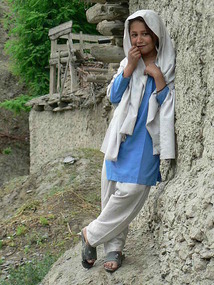
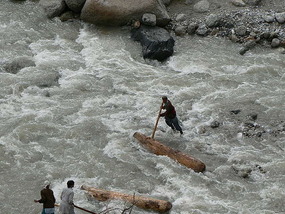
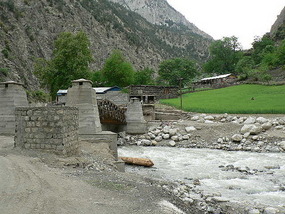
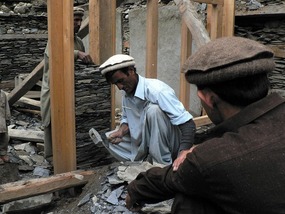
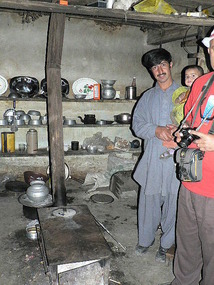
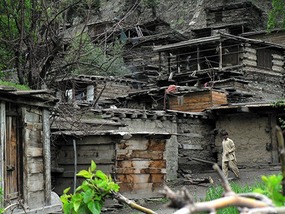
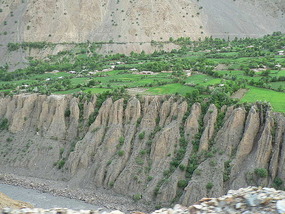

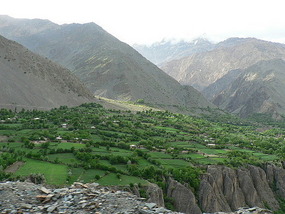




2025-05-22